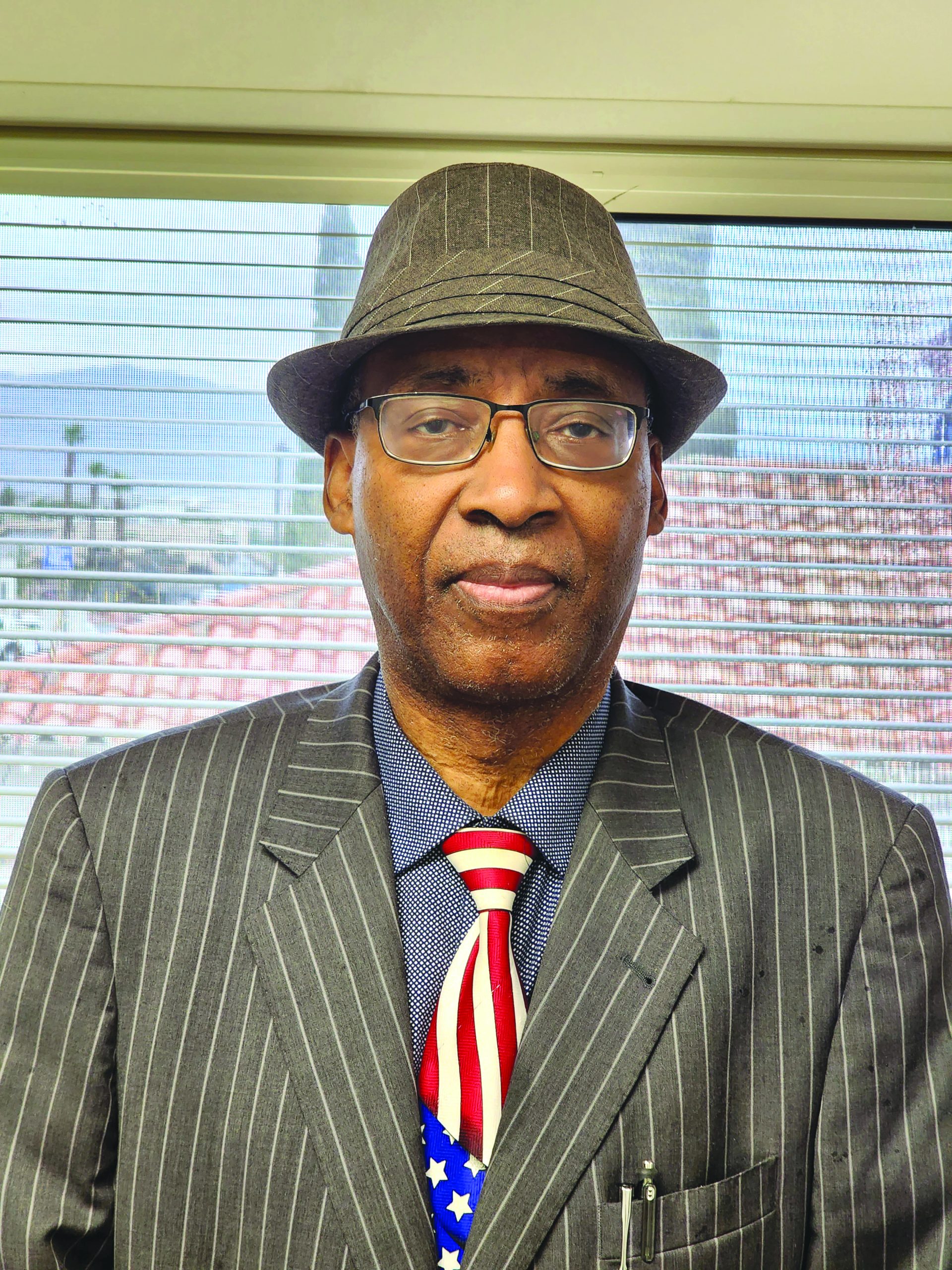
Mr Sonnie Braih is a licenced attorney, in the United States. His passion for affordable and accessible healthcare for Nigerians birthed the forthcoming West Africa Healthcare Expo, through which he intends to bring together both local and foreign medicine manufacturers to cross-fertilise ideas on how to improve the Nigerian healthcare delivery system. In this exclusive interview with PATRICK IWELUNMOR, he shares his thoughts about the healthcare situation in Nigeria and how it can be improved. Excerpts:
Let us know about you and your professional background.
Thank you for this rare opportunity to be interviewed by your renowned publication, Pharmanews. My name is Sonnie Braih. I am a Nigerian by birth but today a Nigerian-American licenced attorney, residing in Las Vegas, Nevada.
I got my Bachelor of Science degree in Business Administration in 1986, from North Dakota State University, in Fargo, North Dakota. Thereafter, I worked as a resident supervisor with the Lutheran Social Services of North Dakota, Fargo and then moved to Dallas, Texas, to further my education in the Fall or late 1986.
I started my three—year law programme at Hamline University School of Law, from 1995 to 1998. I also did my postgraduate degree in Public Administration at Hamline University Graduate School, in Saint Paul, Minnesota. I have worked as a civil rights officer, an administrator and a dvision chief of the External Civil Rights at the Nevada Department of Transportation.
What inspired your passion for healthcare, especially as it concerns Nigeria?
This is a very good question. I was born in Lagos, Nigeria, and spent the early part of my life in Nigeria, until 1981 when I travelled abroad in pursuit of university education. Before leaving Nigeria, hardly could a month go by without my getting down with malaria. The doctors would always prescribe Nivaquine, Camoquine, Chloroquine, quinine, and other similar medications ending with “quine”.
Unfortunately, I was always having allergic “body itching” reactions to these medications. The saving grace for me in those days was Fansidar (sulfadoxine + pyrimethamine). I didn’t have any itchy reaction to Fansidar. Because my grandma always used washed dongoyaro concoction, which is equally bitter to treat my malaria, I became curious about ingredients used in the medication formula.
Due to the frequency of my bout with malaria, I thought it would be great to find a permanent cure and if only I could lead the charge to find the cure for malaria. Unfortunately, during my high school years, Chemistry and Physics were not offered until my fourth year, when my school was approved to have a science laboratory.
Because of this singular shortcoming, my set in high school were only able to take Biology as the only science subject in the West African School Certificate ordinary level examination. If I was privileged to take Chemistry and Physics as part of the science courses required, who knows, I probably could have been a medical doctor today. Be that as it may, I am still grateful to God that I am a lawyer with keen interest in the healthcare sector.
I draw my passion and inspiration for the delivery of good healthcare to the people from the fact that we in our country have taken the necessity of being healthy. Good healthcare is sine qua non to growing a healthy nation.
In 2007, during one of my many trips to Nigeria, I was opportune to visit a sick friend who was in the hospital, actually a private clinic at Ikeja. What I observed was nothing to write home about. Noticing that most of the hospitals that I had been to in Nigeria were nothing compared to what obtains in the United States, I felt it was imperative to not only point out the deficiencies, but to contribute in my own little ways to address some of the shortcomings.
As someone who has been in the USA for decades, what do you think the country is doing better in terms of healthcare, compared to Nigeria?
It is always a tough act to juxtapose or state categorically what country A is doing compared to what Nigeria is doing or not doing. However, for the purpose of this interview, I will state here without fear of equivocation that Nigeria has all the regulatory protocols in place. I have been privileged to review documents from the Medical and Dental Council of Nigeria, the Pharmacy Council of Nigeria, the Nursing and Midwifery Council of Nigeria, the Radiographers Board, the Optometry Board, the Rehabilitation Board and the Nigeria Centre for Disease Control and Prevention (NCDCP) which is like the US Centre for Disease Control (CDC). Actually, the NCDCP was the brainchild of a US-based Nigerian Diasporan.
Theoretically, Nigeria can stand side by side America or other advanced countries in Europe and Asia. But the reality is, everything most likely ends in theory. For instance, can we say with any degree of certainty that our healthcare providers or institutions are operating in compliance with the extant laws, as spelt out in the regulations that are written to regulate them?
Everything is relative. The US is perhaps amongst the top 10 in the provision of healthcare to her citizens. The quality of care is far better than what obtains in Nigeria. I may not be too far from being correct to say that Nigeria ranks in the bottom 10 in the provision of basic healthcare to her citizens.
Again, it is an open secret that the healthcare delivery system over the course of the last three decades has experienced a progressive deterioration, compared to other countries similarly situated. It will be patently unfair to compare Nigeria to the United States of America. We can talk about the National Health Insurance Scheme and the management of this very noble vision. Can we compare this to Obamacare in the US? Absolutely not. I can go on and on but let me save this for another time.
Can you shed some light on your forthcoming West Africa Healthcare Expo? What really do you intend to achieve with it?
In one word, “exposure”. I think it is about time we put our house in order. We have very well trained and highly competent healthcare professionals working in all facets of the healthcare sector. I believe that we cannot only focus on our national malaise when it comes to healthcare. Let us take two sectors as our reference points.
In the pharmaceutical sector, Nigerian-trained pharmacists can compete with or even outperform pharmacists from anywhere on planet earth. Even in the United States and Canada, our pharmacists are making waves. But for the challenges and failure of leadership or lack of political will from the powers that be, even Nigerians that have ventured into manufacturing drugs, such as Emzor, Fidson and Unique, should be commended.
The West Africa Healthcare Expo was designed to bring together in one space all the key stakeholders in the healthcare sphere. It is targeted at doctors, pharmacists, nurses, therapists, dentists and the like. It will provide a very unique platform for the participants and the visitors or consumers to interact or mingle freely in a non-healthcare setting.
We intend to educate, enlighten and empower everybody that shows up that we need to take our personal health seriously. It is also to call attention to the neglected tropical diseases that are ravaging the tropical countries.
What efforts are you making to win the support of stakeholders in the Nigerian health sector like the Nigerian Medical Association and the Pharmaceutical Society of Nigeria?
I have been very privileged over the years to have been able to identify with experienced healthcare practitioners and specifically those in the pharmaceutical and medical professions. These people are very dedicated and passionate to their professions and always willing to discuss the state of the healthcare business in the country. So much so that they identified the challenges and proffer the solutions from their own point of views.
One of the solutions or ideas mentioned is an expo or exhibition where all the major stakeholders are invited to share their views on the problems confronting the industry. I have also had fruitful discussions with eminent subject matter experts in academia – some professors and lecturers within the healthcare discipline – all of whom agreed that we need to empower Nigerians to take charge of their health issues.
Also, the need to address the menace of fake medications is a matter of utmost important that has garnered the support of not only the stakeholders, but everybody that cares.
How do you think government at the federal, state and local levels can leverage your project to make healthcare accessible and affordable to all Nigerians?
Collaboration through team efforts is key to make this expo a success. The TEAM concept envisages a situation where everyone or party participating at every level is a winner. TEAM stands for “Together Everyone Achieves More”. So, the concept of TEAM is key.
Accessibility and Affordability are two buzzwords that are key to Nigeria dealing with healthcare challenges. “Accessible” suggests that most, if not all, our healthcare needs can easily be taken care of in Nigeria. All Nigerians should have equal access to good and qualitative healthcare services. It will save the country foreign exchange and address a critical component of our people going for treatment abroad.
With the value of the Naira and good medical infrastructure in place, we can very well reverse medical tourism because it will be far reasonably affordable to come to Nigeria for medical treatment. Our pharmaceutical companies can also step in to be a net exporter of drugs, just like India is doing to the world.













